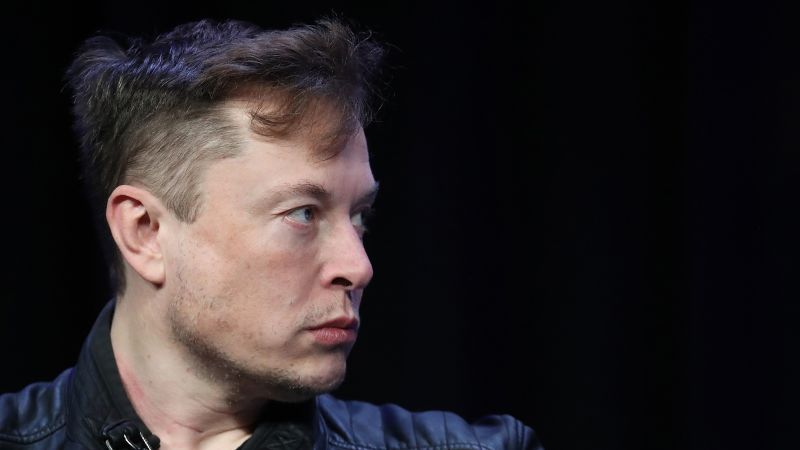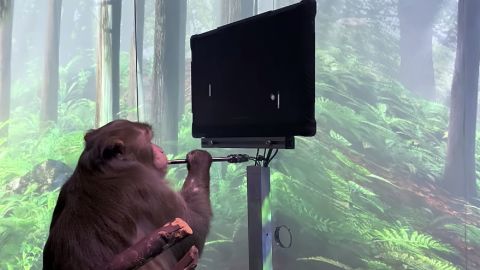
CNN Business
—
Elon Musk — the SpaceX founder, Tesla CEO, and, most recently, Twitter owner — hosted a flashy event on Wednesday night for yet another one of his companies: Neuralink, the startup proposing implants that connect your brain to a computer.
The event showcased a video that Musk said showed a monkey using a brain implant to control a cursor and type on a computer.
It’s not a brand new technology, as researchers have been working on devices that can decode brain signals for a practical purpose for decades. For example, allowing a person to type words or play video games with only their brain has been done before.
Musk noted during the “show and tell” event that the primary goal of the evening was to recruit talent to Neuralink.
“A lot of the time people think that they couldn’t really work at Neuralink because they don’t know anything about biology or how the brain works,” Musk said. “The thing we really want to emphasize here is that you don’t need to because when you break down the skills that are needed to make Neuralink work, it’s actually many of the same skills that are required to make a smartwatch or modern phone work.”
DJ Seo, Neuralink’s vice president of implants, showed off the latest iteration of the company’s device, noting that it’ll be wireless and rechargeable. He also shared footage of a robot that he said was built to perform the implant surgery and also ran through a demonstration of what that surgery could look like, noting that manufacturing and a test clinic were being set up in Austin, Texas.
Musk launched Neuralink more than five years ago with the goal of developing technologies that can enhance the connection between humans and computer by way of implanting chips into peoples’ brains. The company so far has only tested on animals.
Last year, for example, Neuralink said it was able to allow monkeys to play the video game Pong using only their brain implants, though something similar had already been accomplished in a human with a brain implant more than a decade prior. Musk touted footage of the monkey playing Pong again on Wednesday.

The use of animals, however, has angered activists. The company has acknowledged that a monkey had died during the testing process.
“We do everything we possibly can with rigorous benchtop testing so we’re not cavalier about putting devices into animals,” Musk said Wednesday.
The core idea behind Neuralink brings up numerous ethical and sociopolitical questions. But proponents say such devices provide life-changing help to amputees and disabled persons if they, for example, lose the ability to use their hands or see.
Musk, however, also tends to emphasize non-medical uses, such as using brain implants to even the playing field, if digital artificial intelligence becomes smarter than any human.
“How do we mitigate that risk? At a species level?” Musk asked Wednesday. “Even in a benign scenario, where the AI is very, very benevolent — then how do we go along for the ride?”
Musk’s Neuralink is not the only organization pursuing this technology. And some researchers with federal funding are already doing some clinical trials.
During Wednesday’s event, Musk was asked if Neuralink would plan to make its tools available to neuroscientists. He replied that the company would after it had reached the production phase.
Before Neuralink’s brain implants are mass produced and hit the broader market, they’ll need regulatory approval. The US Food and Drug Administration put out a paper in May last year mapping out the agency’s initial thoughts on brain-computer interface devices, noting the field is “progressing rapidly.”
Musk said Wednesday that Neuraink has submitted “most” of its paperwork to the FDA and could begin testing on humans within six months. It should be noted, however, that Musk frequently touts deadlines that don’t come to fruition, from his claims about when SpaceX would get its Mars rocket to space to his predictions about when self-driving cars would be on the road.
